Written By: Brad Campbell | March 14, 2022
A security system is only as strong as its weakest point, which is almost always an unprotected door or window. For the highest level of access denial for forced entry and active threat protection, ballistic-grade (bullet-resistant) doors are an excellent choice for fortifying your building.
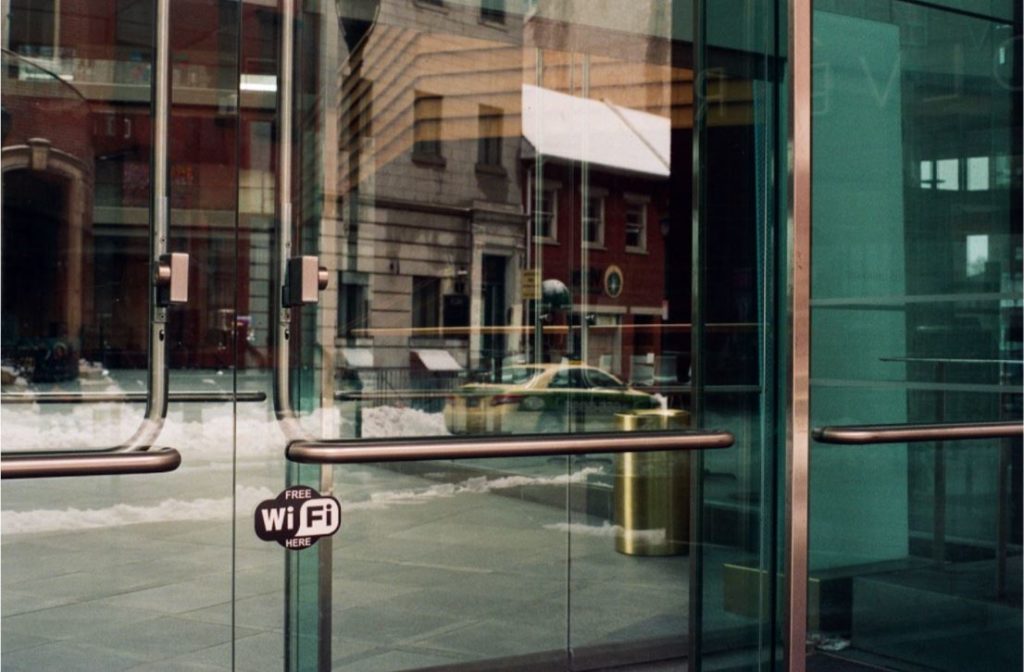
However, there are many different types of doors used in commercial buildings, and each type of door calls for a slightly different solution to make it bullet-resistant. This article will examine some of the most common and effective solutions to give you a better understanding of how you can improve your property’s security, without compromising on aesthetics and functionality.
There are four main types of doors used for commercial applications:
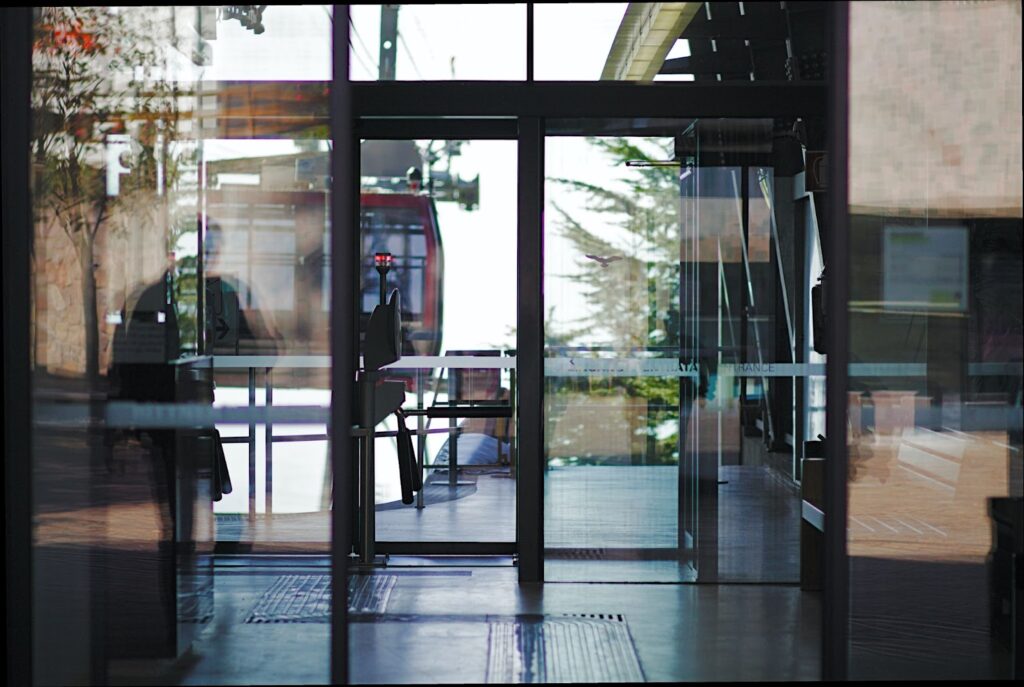
Each of these different materials requires a different solution in order to make the door ballistic grade.
Wood doors, either solid or made from wood veneers with a hollow core, are commonly used for interior commercial doors in offices and other facilities.
In order to make a wooden door ballistic grade, it must have some kind of bullet-resistant material in its core. One solution for this is to apply bullet-resistant fiberglass over a solid wooden core and cover it with wood veneer finishes to hide it.
Metal doors, typically made from aluminum or steel, are another common type of door used in commercial facilities. They are often used between interior and exterior areas as entry and exit doors.
The most efficient way to create a bullet-resistant metal door is to make it from solid steel and hang it from a solid steel frame. Because steel is so much denser than aluminum, solid steel doors can provide a high level of ballistic protection.
Many commercial doors include glass view-through windows, set in either a metal or wooden door frame or panel.
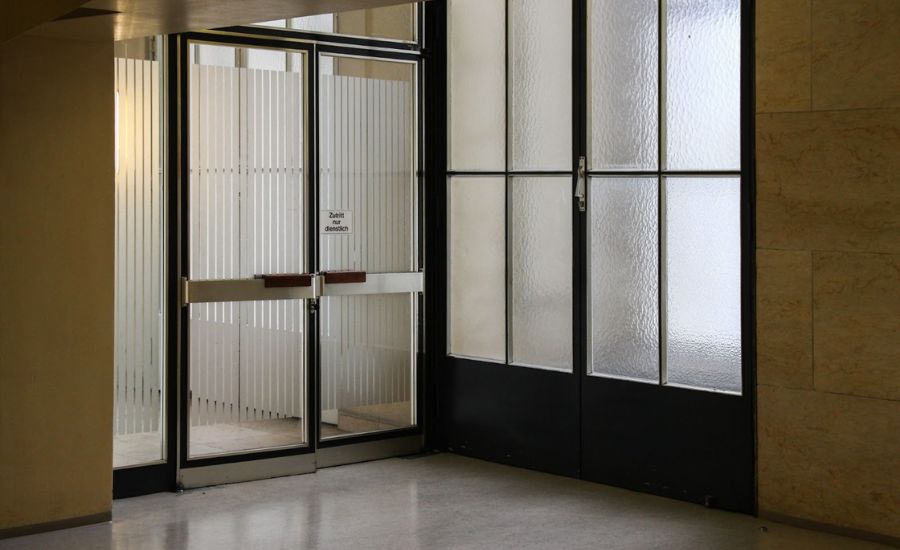
If you want this type of door to be fully bullet resistant, you need to protect the glass behind some type of ballistic shield as well.
The most cost-effective way to do this is to retrofit polycarbonate security glazing over the top of the glass. This can be done by fixing aluminum security framing, infilled with ballistic-grade polycarbonate, into or onto the existing framing system.
Bullet-resistant polycarbonate glazing is virtually unbreakable during forced entry attempts and is able to withstand multiple rounds from certain firearms. Even if riddled with bullets, polycarbonate doesn’t shatter or significantly diminish in strength.
Because of this resilience, polycarbonate security glazing prevents a would-be intruder from shooting out a glass pane in a door and reaching through to open the door from the inside.
All-glass doors consist of a single glass sheet mounted in the slim top and bottom rails made of metal, typically aluminum.
These types of glass doors are one of the most modern, aesthetically pleasing door choices for commercial applications. They provide a sleek, modern look that complements properties like glass office buildings, banks, luxury retailers, and other businesses.

However, being made entirely of glass means that all-glass doors are also the most vulnerable to forced entry and ballistic attacks.
In order to mitigate these risks, the ideal option is to install bullet-resistant all-glass doors, which should be made from glass-clad polycarbonate or full polycarbonate. These materials provide the highest level of ballistic protection, without sacrificing curb appeal or changing how the glass doors function.
No matter what type of door you are making bullet-resistant, the materials you use should all have a UL 752 rating from the Underwriters Laboratories.
The Underwriters Laboratories is a global safety and security certification company, and the company’s UL 752 rating is an international standard for bullet resistance.
UL 752 ratings are provided in different levels, based on a material’s or product’s ability to withstand certain types of ballistic rounds shot from different firearms.
Testing to achieve these ratings is performed in very controlled settings, proven to demonstrate a product’s true ability to withstand ballistic attacks. Take a look at the chart below to help you understand the different levels of UL 752 ratings.
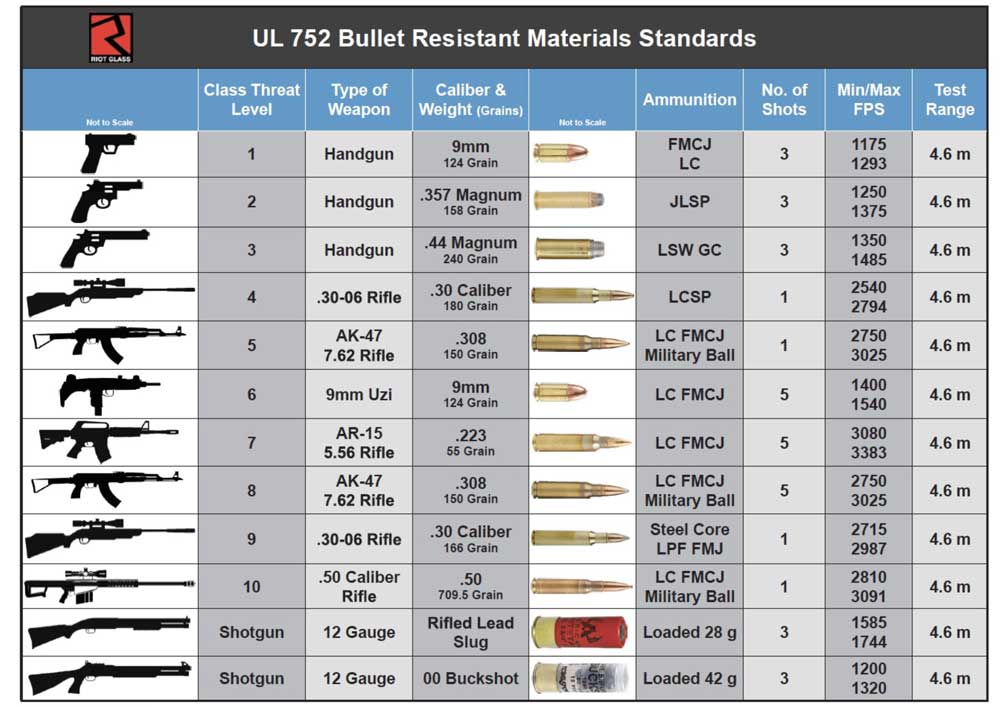
Riot Glass is proud to offer our proprietary line of AG Series all-glass bullet-resistant doors. These doors are elegant, yet formidable — they’re designed to meet the demanding standards of security experts, designers, and architects alike.
AG Series all-glass doors can accommodate various ballistic-grade infills, including our polycarbonate and glass-clad polycarbonate security glazing.
This bullet-resistant security glazing is available with up to a UL 752 Level 7 rating, meaning it can withstand ballistic attacks from active threats using as powerful a weapon as an AK-47 assault rifle with military-style rounds.
In addition to providing a high level of ballistic resistance and active threat protection, our all-glass doors are forced entry-rated and designed to withstand prolonged forced entry attempts using heavy hand tools.
AG Series glass doors will keep the bad guys out, while people inside have time to react to an attack by running, hiding, barricading themselves inside, and waiting for the police or FBI to arrive and neutralize the threat.
On top of being bullet resistant and forced entry resistant, our AG Series ballistic doors are highly customizable, so you can choose a look that matches your building’s aesthetics perfectly.
AG Series door customization options include:
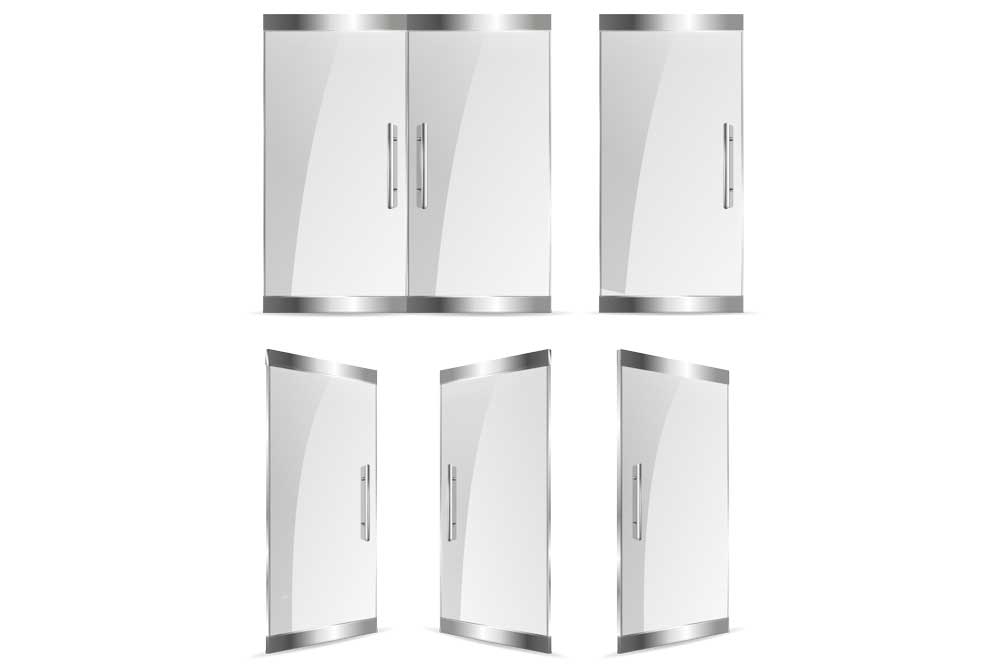
Are you ready to install bullet-resistant glass doors today? Contact us now for more information or to schedule a consultation.

HOW CAN WE HELP YOU?
